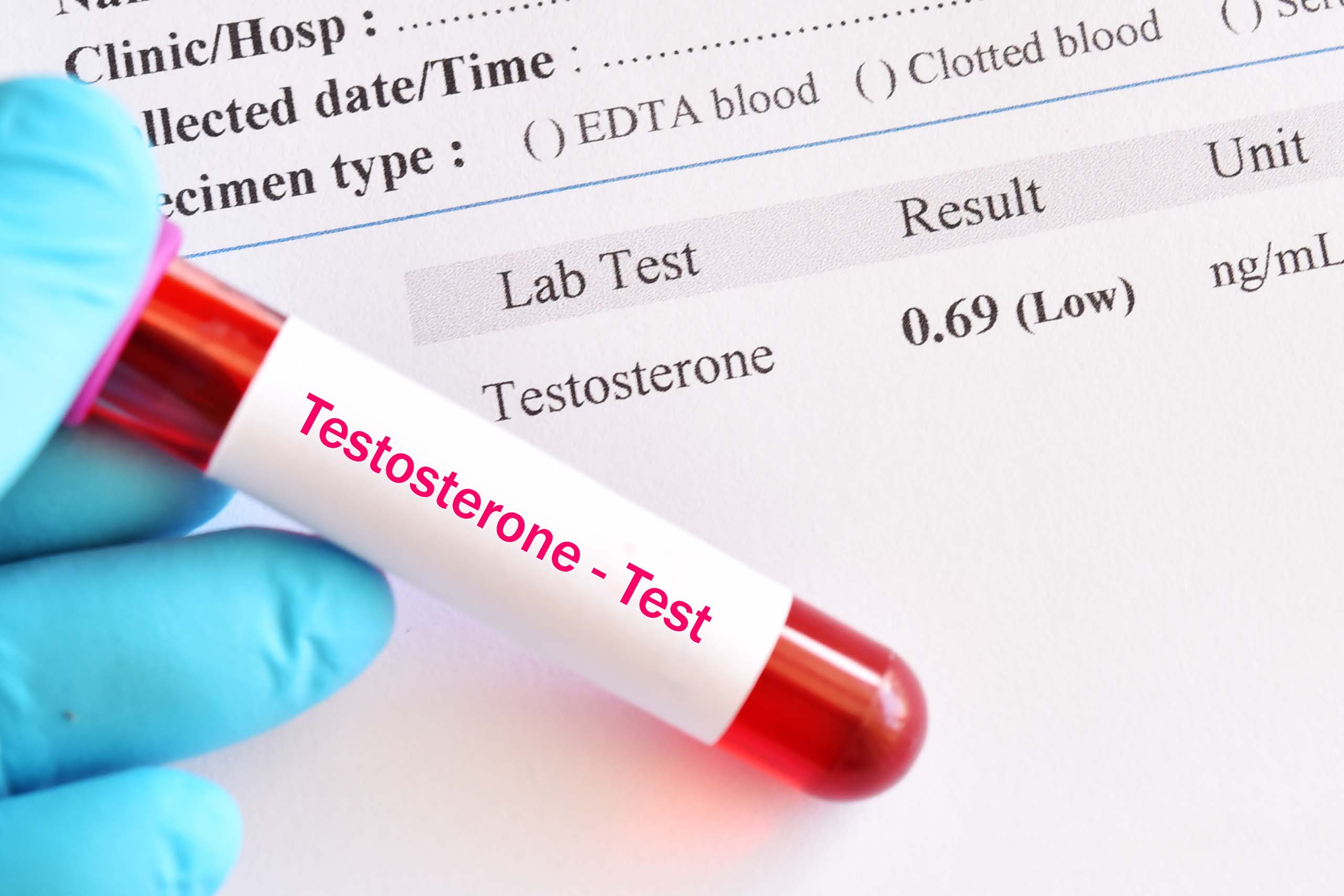Is Testosterone Replacement Therapy Safe? Potential TRT Side Effects You Should Know
Hypogonadism, a medical condition characterized by abnormally low testosterone levels, can significantly impact a man’s quality of life. To counteract the effects of this condition, Testosterone Replacement Therapy (TRT) has emerged as a powerful solution.
TRT has garnered substantial attention for its efficacy as a hypogonadism treatment, making it a first-line treatment option for men seeking to regain vitality and overall well-being.
But is TRT safe? Are there any TRT side effects? Is TRT a lifelong commitment? What are the things you need to know before starting TRT? Read on to find out.
Safety of Testosterone Replacement Therapy | Learn This Before You Start TRT
Is TRT Effective?
TRT’s effectiveness in treating hypogonadism cannot be overstated. Its wide usage and positive outcomes have solidified its status as a primary therapeutic approach.
Hypogonadism can manifest as decreased libido, fatigue, muscle loss, and mood disturbances. TRT directly targets these symptoms by replenishing testosterone levels, promoting muscle growth, boosting energy, and enhancing mood.
Numerous clinical studies have demonstrated the remarkable impact of TRT on improving the overall quality of life for men with hypogonadism. The administration of exogenous testosterone through TRT helps bridge the gap between endogenous hormone levels and the levels necessary for optimal health.
It’s important to note that TRT is not merely a quick fix; instead, it addresses the underlying hormonal imbalance to provide sustained relief from the symptoms of hypogonadism.
RELATED: All Benefits Of Testosterone Therapy: A Near-panacea For Male Hypogonadism

Who is a Candidate for TRT?
TRT’s scope extends beyond just older men with pre-existing low testosterone levels. It is also a viable option for those who wish to prevent the onset of low testosterone symptoms proactively. This preventive aspect of TRT is gaining recognition as an effective strategy to maintain vitality and ward off the debilitating effects of low testosterone.
The treatment is also suitable for men who experience low testosterone levels due to other medical conditions, such as:
- Testicular disorders
- Obesity
- Diabetes
- Pituitary gland disorders
- Certain medications’ side effects
- Chronic stress
- Chronic alcohol abuse
This expansion of TRT’s candidacy criteria emphasizes its role not only in corrective medicine but also in preventive medicine, empowering individuals to take charge of their health before symptoms of low testosterone worsen and impair quality of life.
RELATED: Does Smoking Lower Testosterone Levels?
How Long Does It Take to See TRT Benefits?
One common question surrounding TRT is the timeline for observable results. While each individual’s response may vary, patients typically expect to experience some benefits within a few weeks to a few months after starting TRT.
However, it’s essential to exercise patience, as the full spectrum of TRT benefits may take several months, even years, to become apparent.
In the initial stages, typically 3 months after starting TRT, improvements in energy levels, mood, and cognitive function are often among the first changes. Gradually, muscle mass, bone density, and body composition changes become more noticeable.
Long-term TRT benefits, such as reduced risk of osteoporosis, are evident with consistent adherence. Close monitoring and adjustment of TRT dosage may be necessary to tailor the therapy to an individual’s unique needs and ensure optimal results.
RELATED: How Long Does It Take For Testosterone Replacement Therapy To Work?

What Are the Risks or Side Effects Associated With TRT?
TRT offers potential benefits for individuals with low testosterone levels, but it’s essential to understand the associated risks and TRT side effects. Two prevailing health concerns often associated with TRT side effects are:
- Cardiovascular disease
- Prostate cancer
Recent research published in The New England Journal of Medicine (NEJM) has provided insights into the cardiovascular risks of TRT. The study focused on middle-aged men with hypogonadism and pre-existing or high cardiovascular disease risk.
The findings indicated that TRT, in the form of transdermal testosterone gel 1.62%, was non-inferior to placebo regarding major adverse cardiac events. This evidence suggests that those on TRT do not exacerbate cardiovascular risk compared to those not on TRT.
Regarding prostate cancer, a 2015 study published in Therapeutic Advances in Urology (TAU) highlights a complex situation. While animal studies have shown that testosterone can promote prostate cancer, the relationship in humans is unclear.
According to the Prostate Cancer Foundation, testosterone does not cause prostate cancer but can fuel existing cancer growth. This finding underscores the importance of regular physician monitoring for prostate cancer risk in men undergoing TRT.
RELATED: New Findings On Safety Of Short-term Testosterone Replacement Therapy
Is TRT Safe for Older Men?
TRT is generally safe for older men eligible for treatment, although potential TRT side effects exist. While TRT can carry risks, its safety profile is encouraging.
However, considering that TRT might raise the risk of pre-existing health conditions like prostate diseases, initiating treatment upon the first signs of low testosterone is advisable. Starting TRT as soon as symptoms of low testosterone emerge can help mitigate potential risks associated with delaying treatment.
The age to start TRT may vary depending on an individual’s health, symptoms, and medical history. Still, typically, men in their late 30s and beyond who experience low testosterone symptoms could benefit from discussing TRT with a healthcare provider to determine the most appropriate course of action.
*To learn whether TRT is safe for you, take this hormone quiz. With the help of the hormone quiz, you can better understand your low testosterone symptoms, allowing you to seek prompt consultation and hormone treatment.
RELATED: Hormone Quiz For Men | How Our Hormone Quiz Can Help You
Can TRT Interact With Other Medications?
TRT can interact with certain medications, potentially affecting efficacy or safety. Medications that lower testosterone production, like corticosteroids and opioids, can counteract the benefits of TRT. Therefore, please be cautious.
To manage these interactions, inform your healthcare provider about all medications you are taking, both prescription and over-the-counter. This act allows the provider to make informed decisions about TRT and adjust treatment plans if necessary.
Regular monitoring of potential TRT side effects is crucial. Collaborative communication between patients and healthcare professionals ensures that interactions are identified and addressed promptly, maximizing the benefits and minimizing risks.
*To learn whether the medications you are currently taking can interact with TRT, check out this drug interaction report.
RELATED: Drug Interactions | Does Testosterone Interact With My Other Drugs?
Is TRT a Lifelong Commitment?
TRT has typically been employed for short- to medium-term durations, spanning from 3 months to a year, with some cases extending to around 30 weeks. While long-term studies are limited, TRT’s immediate effectiveness in addressing low testosterone symptoms suggests that it does not inherently demand a lifelong commitment.
Therefore, TRT duration depends on the patient’s response and goals. As long as TRT mitigates low testosterone and is monitored by healthcare professionals, it does not necessitate an indefinite commitment, offering patients flexibility in treatment.
RELATED: Starting & Stopping Hormone Replacement Therapy | Risks & Side Effects
References
Michaud J et al. (2015). Testosterone and Prostate Cancer: An Evidence-based Review of Pathogenesis and Oncologic Risk. Therapeutic Advances in Urology.
Bhasin S et al. (2018). Testosterone Therapy in Men With Hypogonadism: An Endocrine Society Clinical Practice Guideline. The Journal of Clinical Endocrinology & Metabolism.
Lincoff A et al. (2023). Cardiovascular Safety of Testosterone-Replacement Therapy. The New England Journal of Medicine.
Schedule Your Free Consultation
Yunique Medical provides FUNCTIONAL MEDICINE for optimized health and performance. We offer customized, scientifically advanced treatments to create a new state of human thriving. Why be ordinary when you can be optimal?
HUMAN 2.0 begins here!
Contact us to schedule your FREE consultation at one of our three locations in Florida – Ocala, Fruitland Park (The Villages), and Daytona.
UP NEXT:


